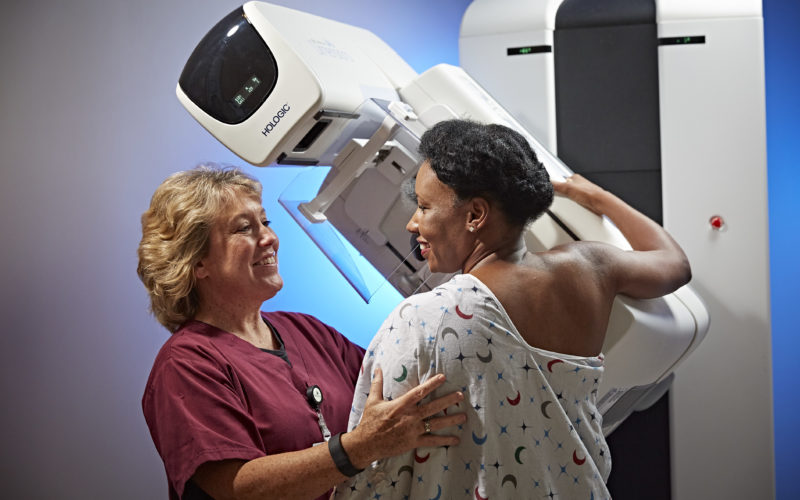I Have Dense Breasts. Should I Worry?

Many women will receive a notification letter that they have dense breasts when they receive their mammogram results.
DO NOT PANIC! The vast majority of women receiving these notifications are not at increased risk for breast cancer.
But it is helpful to learn more about dense breasts and choose the breast screening method that is best for you.
Breast tissue is composed of dense tissue, such as milk glands, milk ducts and tissue that supports milk glands, and less dense tissue, such as fat.
You can’t detect dense breasts without imaging. It isn’t something that you can discern during a self exam or that your doctor can identify during a routine well-woman exam.
When screening with a traditional mammogram, it’s more difficult for the radiologist who analyzes your mammogram to detect growths in dense breasts than it is in less dense breasts.
That is why a woman who has dense breasts should consider breast tomosynthesis, a 3-D mammogram that uses X-rays to collect multiple images of the breast from different angles. The images are synthesized by a computer to form a 3-D image of the breast, which allows the radiologist to analyze breast tissue in tiny slices rather than a seeing the entire breast , with everything superimposed on everything else.
It’s not unusual for a younger woman who doesn’t have a lot of body fat to have dense breasts. Unless she has a family history or other risk factors, her risk of developing breast cancer is not increased.
If a woman has dense breasts, is past menopause and is not extremely slender, that means she may be at some increased risk of developing breast cancer.
So, what should a woman do when she gets a notification that she has dense breasts? She should ask her primary care provider what her risk is of developing breast cancer. Most women have a lifetime risk or 12 percent or lower.
Your primary care provider – PCP – will take a family history going back three generations. Your PCP also will examine you and the results of your studies, as well as look at your weight and height.
That information will allow your PCP to calculate your 10-year risk and your lifetime risk of developing breast cancer. If the lifetime risk is greater than 20 percent, you may consider having an annual screening MRI, as well as annual tomosynthesis mammography.
At the Helen F. Graham Cancer Center & Research Institute, we invite women with extremely dense breasts to our Breast Cancer Prevention Program, in which they meet with a specially-trained physician assistant, and member of the Breast Surgeons practice, for a comprehensive 45-minute Breast Cancer Prevention Program visit.
The visit provides lots of time to learn more and get answers to your questions. Together, we partner with patients to make the best choices for breast health. To make an appointment, call 302-623-4343.